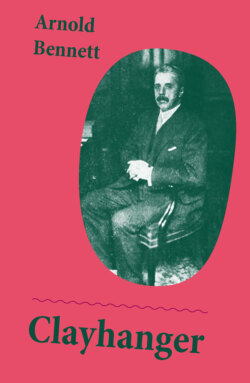Читать книгу Clayhanger (Unabridged) - Arnold Bennett - Страница 40
На сайте Литреса книга снята с продажи.
Two.
ОглавлениеSo this was business! It was not the business he desired and meant to have; and he was uneasy at the extent to which he was already entangled in it; but it was rather amusing, and his father had really been very friendly. He felt a sense of importance.
Soon afterwards Clara ran into the shop to speak to Miss Ingamells. The two chatted and giggled together.
“Father’s gone to Manchester,” he found opportunity to say to Clara as she was leaving.
“Why aren’t you doing those prizes he told you to do?” retorted Clara, and vanished, She wanted none of Edwin’s superior airs.
During dinner Mr Clayhanger had instructed his son to go through the Sunday school prize stock and make an inventory of it.
This injunction from the child Clara, which Miss Ingamells had certainly overheard, prevented him, as an independent man, from beginning his work for at least ten minutes. He whistled, opened his father’s desk and stared vacantly into it, examined the pen-nib case in detail, and tore off two leaves from the date calendar so that it should be ready for Monday. He had a great scorn for Miss Ingamells, who was a personable if somewhat heavy creature of twenty-eight, because she kept company with a young man. He had caught them arm-inarm and practically hugging each other, one Sunday afternoon in the street. He could see naught but silliness in that kind of thing.
The entrance of a customer caused him to turn abruptly to the high shelves where the books were kept. He was glad that the customer was not Mr Enoch Peake, the expectation of whose arrival made him curiously nervous. He placed the step-ladder against the shelves, climbed up, and began to finger volumes and parcels of volumes. The dust was incredible. The disorder filled him with contempt. It was astounding that his father could tolerate such disorder; no doubt the whole shop was in the same condition. “Thirteen Archie’s Old Desk,” he read on a parcel, but when he opened the parcel he found seven “From Jest to Earnest.” Hence he had to undo every parcel. However, the work was easy. He first wrote the inventory in pencil, then he copied it in ink; then he folded it, and wrote very carefully on the back, because his father had a mania for endorsing documents in the legal manner: “Inventory of Sunday school prize stock.” And after an instant’s hesitation he added his own initials. Then he began to tie up and restore the parcels and the single volumes. None of all this literature had any charm for him. He possessed five or six such books, all gilt and chromatic, which had been awarded to him at Sunday school, ‘suitably inscribed,’ for doing nothing in particular; and he regarded them without exception as frauds upon boyhood. However, Clara had always enjoyed reading them. But lying flat on one of the top shelves he discovered, nearly at the end of his task, an oblong tome which did interest him: “Cazenove’s Architectural Views of European Capitals, with descriptive letterpress.” It had an old-fashioned look, and was probably some relic of his father’s predecessor in the establishment. Another example of the lack of order which prevailed!
